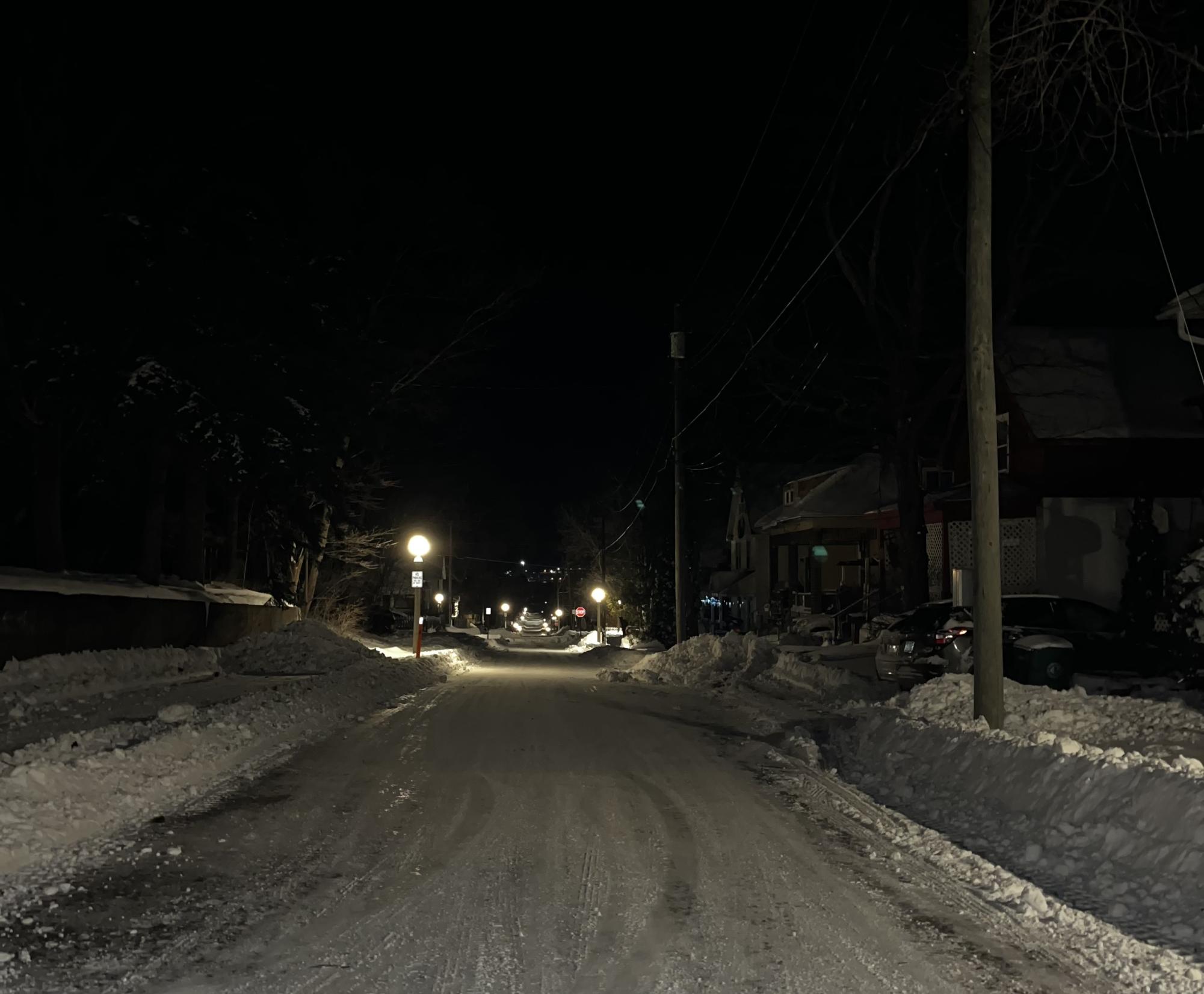If you’ve spent a winter in Marquette, you know people have to form some sort of delusion to get them through the season and keep from slumping over in a snow bank. Being an off-campus student without a car, I sacrifice any fashion sense I have for warmth so that my limbs don’t snap off in the half-lucid interim between my bed and my morning class.
To survive the cold, to find the will to learn at any cost, to Bear Grylls yourself through the pain, you have to have a pretty firm delusion. This could be a form of Stockholm syndrome of the cold. This could be a superiority complex to boast to your family in the lower peninsula. This could be you pretending to be on Man vs. Wild and crawling inside a polar bear carcass because it’s your only chance at surviving long enough to be rescued and helicoptered into Applied Literary Theory.
Romanticizing the snow is the only way I can wager with my life and health during these months. I’ve crocheted myself a granny square balaclava and invested in an extra large corduroy coat and pretend I look like I’m Slavic and herd yaks. That’s a good delusion. I even went as far as taking Russian 101 last year to immerse myself in this aesthetic fabrication further.
Take a bit of pride in your suffering, because when you graduate and have the opportunity to move somewhere warm and feel the leathery layers of your skin waning and thinning, when will you get to enjoy the catharsis of complaining, or the excuse to drop to the floor next to the space heater as soon as you get home? When will you get to feel that bitter camaraderie of scraping ice off a car with friends?
Amidst the hazardous conditions and the clinical need for hibernation, there is a hidden beauty in the snow. While walking down the dusted sidewalks from street lamp to street lamp on pitted winter nights, a deep sense of community sits somewhere in the still. We are all collectively saying “Yes it’s cold and dark, but we choose to put our little society here anyway.”
The snow’s pearlescent and reflective nature is a vast horizon of comfortable bleakness, a mirage of blinking connection. The desolation and isolation of Marquette’s winters have negative connotations, but in these liminal evenings, these stale and cauterized nights, there lies a veiled familiarity in the absence of life and light. There is home in the quiet and buried, and I don’t believe there is a warmer embrace than that.







